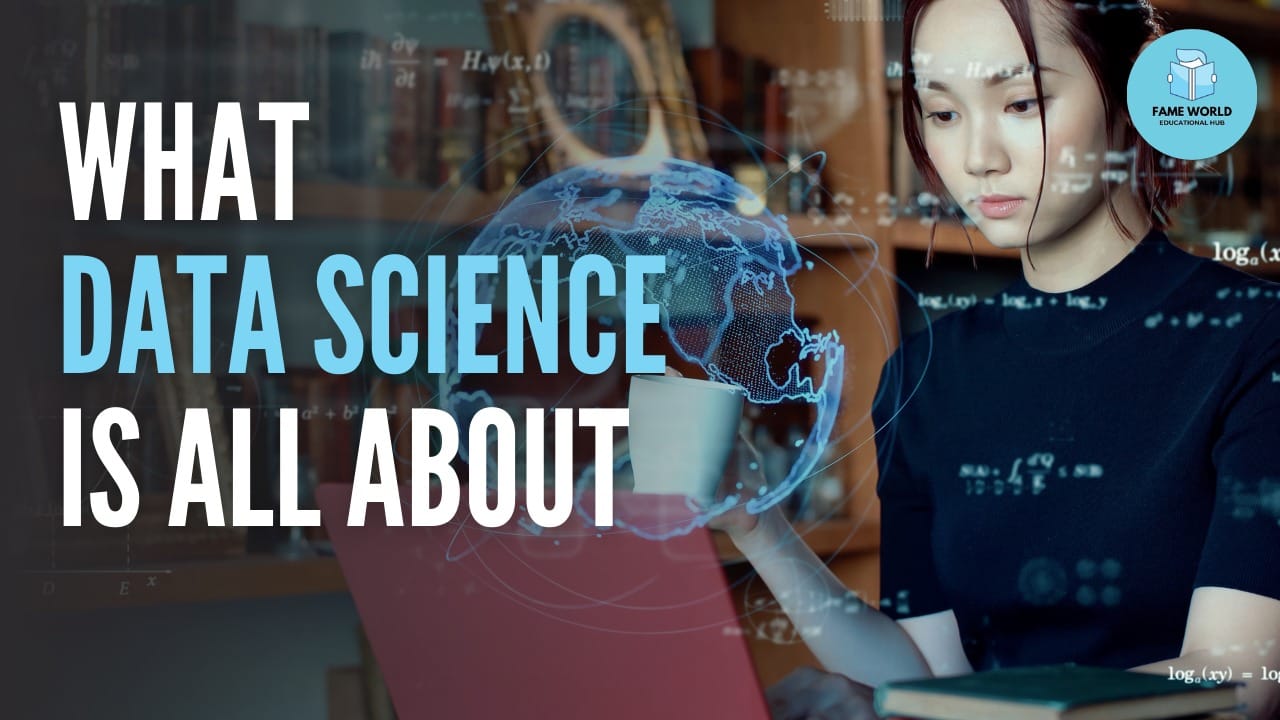Data science has rapidly become one of the most in-demand fields in the 21st century, transforming industries and revolutionizing the way we make decisions. But what exactly is data science? Why is it so important? Let’s dive into the meaning, applications, and key components of data science in this interactive guide.
What is Data Science?
At its core, data science is a multidisciplinary field that extracts insights and knowledge from structured and unstructured data. It combines techniques from:
- Statistics: For analyzing data and finding patterns.
- Computer Science: For building algorithms to process and model data.
- Domain Knowledge: To understand the problem and provide actionable solutions.
In simpler terms, data science is about turning raw data into meaningful information that can drive decision-making.
Why is Data Science Important?
We live in a world overflowing with data. From social media posts to sensor data in IoT devices, the volume of information is staggering. Organizations use data science to:
- Optimize operations: Retailers like Amazon use data science to streamline logistics and recommend products.
- Predict trends: Banks and financial institutions use it to predict stock market trends and assess credit risk.
- Enhance customer experience: Platforms like Netflix use it to personalize recommendations.
- Improve healthcare: Medical researchers use data science to identify patterns in disease progression and design better treatments.
How Does Data Science Work?
The data science process typically involves these steps:
- Problem Identification: Clearly defining the problem you want to solve.
- Data Collection: Gathering data from various sources such as databases, APIs, and web scraping.
- Data Cleaning: Removing inconsistencies, missing values, and errors from the dataset.
- Exploratory Data Analysis (EDA): Using statistical methods to uncover patterns and relationships.
- Model Building: Applying machine learning algorithms to predict outcomes or classify data.
- Evaluation: Testing the model’s performance and accuracy.
- Deployment and Monitoring: Implementing the model in a real-world scenario and tracking its performance.
Key Skills for Data Scientists
If you’re considering a career in data science, you’ll need to master a combination of technical and soft skills, including:
Technical Skills:
- Programming languages like Python, R, or SQL.
- Understanding of machine learning algorithms.
- Familiarity with data visualization tools like Tableau or Power BI.
- Knowledge of big data tools like Hadoop and Spark.
Soft Skills:
- Problem-solving and critical thinking.
- Effective communication to present findings.
- Domain knowledge to contextualize insights.
Applications of Data Science
The applications of data science span almost every industry:
- Healthcare: Predicting patient outcomes and optimizing hospital resources.
- Finance: Fraud detection and algorithmic trading.
- Marketing: Targeted advertising and customer segmentation.
- Education: Personalized learning experiences and performance tracking.
Challenges in Data Science
Despite its potential, data science is not without challenges:
- Data Quality: Garbage in, garbage out. Poor-quality data leads to inaccurate results.
- Bias and Fairness: Ensuring algorithms don’t perpetuate existing biases.
- Scalability: Handling massive datasets efficiently.
- Privacy: Balancing innovation with ethical considerations and data privacy laws.
Watch and Learn
Want to dive deeper into data science? Watch this recommended video – Link to gain additional insights into the field. The video covers practical examples, tools, and real-world applications to help you better understand the role of data science in today’s world.
Conclusion
Data science is more than just a buzzword—it’s a transformative force reshaping industries. Whether you’re a beginner looking to enter the field or a business professional wanting to leverage data for better decision-making, understanding the basics of data science is essential.
Got questions about data science? Drop them in the comments below, and let’s discuss!
Additional learning resources:
PYTHON Q&A SERIES – Link
IOT TUTORIAL SERIES – Link
PYTHON PROGRAMMING TUTORIAL SERIES – Link
CAREER TIPS – Link
CLOUD COMPUTING – Link
MERN FULL STACK WEB DEVELOPMENT – Link
DJANGO SERIES – Link
DIGITAL MARKETING – Link
C LANGUAGE – Link
CODING INTERVIEW PREPRATION – Link
NEW AI TOOLS – Link
PYTHONISTA FOR PYTHON LOVERS – Link
ARTIFICIAL INTELLIGENCE – Link
MACHINE LEARNING USING PYTHON – Link
DBMS – Link
PYTHON PROGRAMMING QUIZ SERIES – Link
BLOCKCHAIN TECHNOLOGY TUTORIAL SERIES – Link
NETWORKING QUIZ SERIES – Link
CYBER SECURITY Q&A SERIES – Link
PROGRAMMING RELATED STUFF – Link



